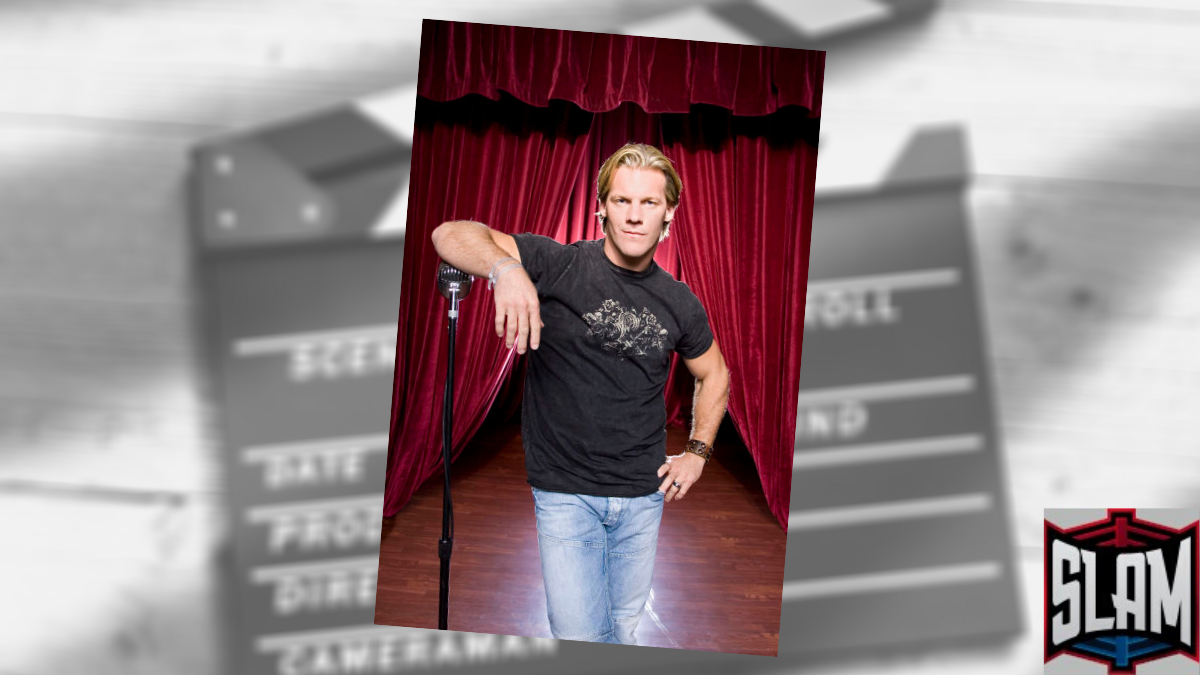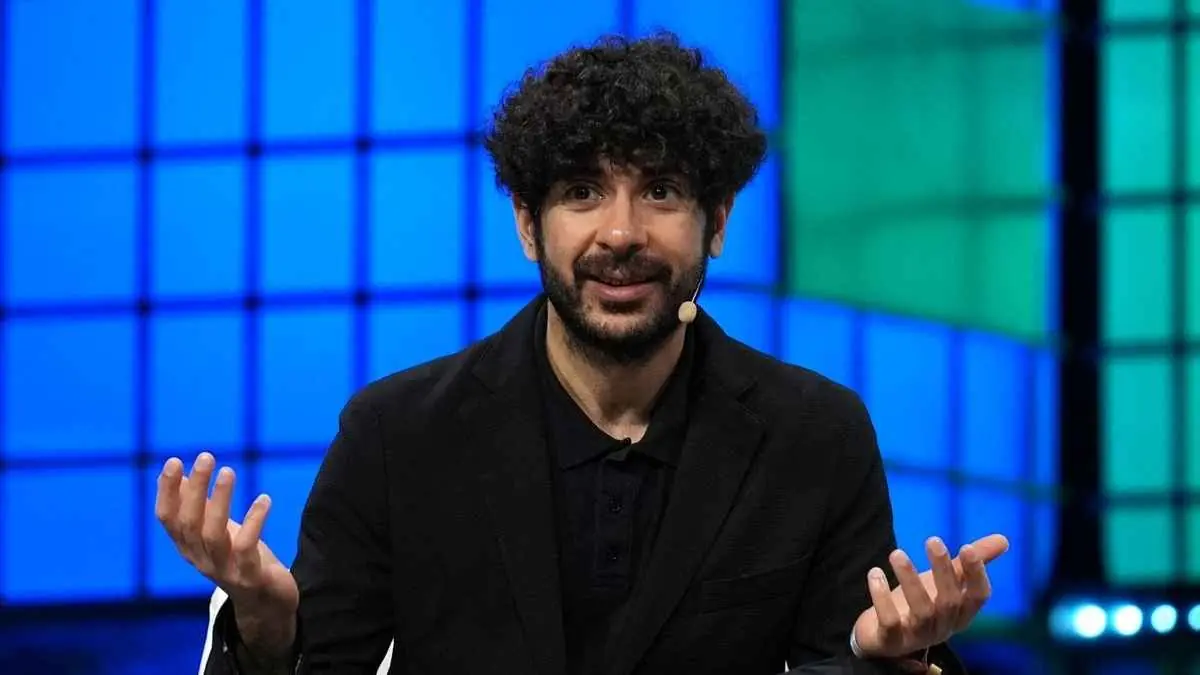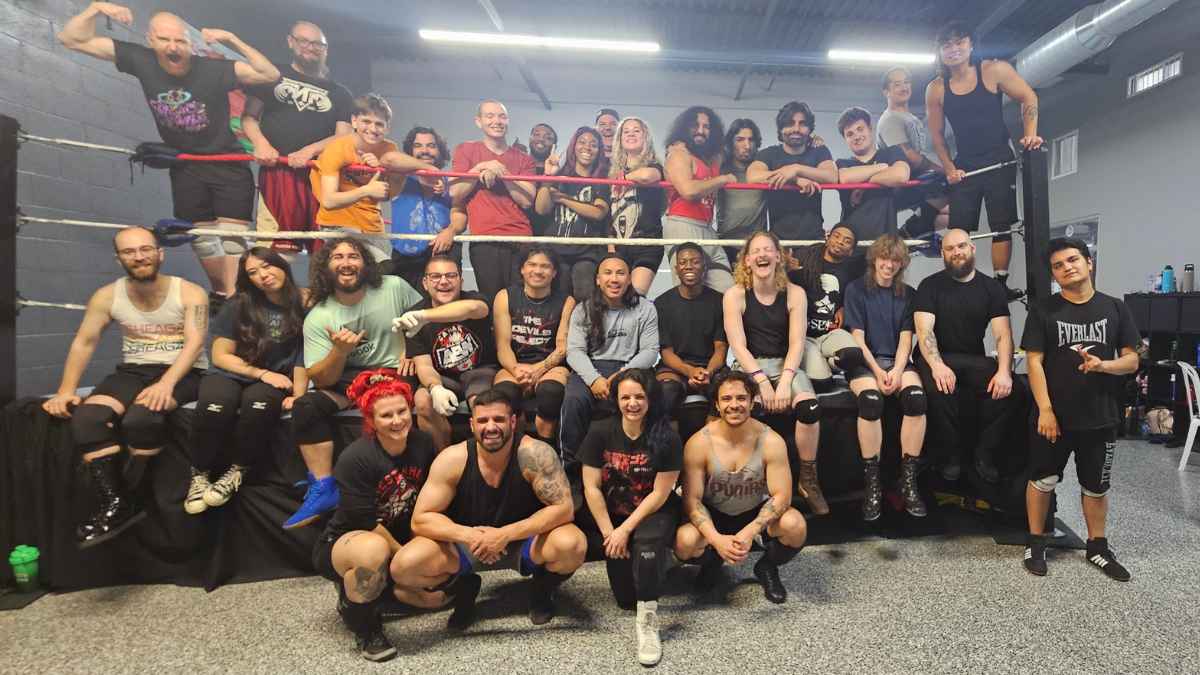On the eve of his stage debut in Toronto, playing a 40-year-old varnish salesman in Opening Night, Chris Jericho took the time to walk Slam Wrestling through his transition from the WWE to Hollywood, and explained his philosophy on asking for forgiveness.
Even with his imminent stage debut, fronting his band Fozzy, hosting his own XM radio show, putting in appearances on VH1, playing a role in the recent premiere of Sci-Fi’s original film Android Apocalypse, studying in acting classes and working with the L.A.-based improv group The Groundlings, Chris Jericho still can’t decide if he’s busier now than when he was suffering the grueling pace of being a WWE superstar.
“I don’t know if it’s as busy as when I was wrestling, because in many ways the schedule’s a little more flexible,” he explains, “Each one takes up a lot less time than my wrestling job did, but when you combine them all it’s probably just as busy. It’s more up to me to decide when I’m doing things and what I’m doing, so in that respect it’s way better.”
Jericho obviously thrives on a hectic schedule, because he started preparing himself for the transition to acting while he was still a full-time wrestler. “I’d been planning for a year and half to two years before I left the WWE, planning and cultivating relationships,” he details. “I knew I wanted to take a break from wrestling, I was physically burned out and mentally burned out, but I didn’t just want to leave be left flat-footed when I did it.” He goes on to explain that he consciously avoided involving the WWE in his attempts to pave the way for his acting. “Honestly, sometimes when the WWE gets involved it’s a lot of red tape, and I just didn’t think I needed to hassle them with all that stuff,” he says. “It helps them anyway when one of their people branches out. They never really said no, but I never really gave them an option to.”

Of course, being Chris Jericho helps when you run side projects without telling your boss. In that light, Jericho does not recommend trying this during your first week at a new job. “Once you get to a certain level you have a much better relationship and it’s not as much of a Gestapo attitude. For a lot of the younger guys they do exactly as they’re told; that’s the way it is, and that’s the way they like it sometimes.”
Summing up, Jericho has a way of explaining what was ostensibly sneaking around the problem that his boss might have said no that makes it sound perfectly understandable: “I always live by the philosophy that it’s a lot easier to ask for forgiveness than it is to ask for permission.”
Jericho’s ability to take a chance and start a new career was built on the foundation that his stellar wrestling career had built for him. There’s nothing like a safety net when you want to branch out and try something new, but the trick is to not fall back into it right away. Michael Jordan went back to basketball without so much as a sniff at baseball’s big leagues; Garth Brooks decided that he wasn’t a little bit Rock n’ Roll after all and went back to Country. Somehow, though, it doesn’t sound like Jericho has any designs on the returning to the ring.
“I always prepared for life after wrestling just by being smart with my money,” he says. “I never wanted to wrestle forever; when I first started I wanted to wrestle until I was 30. I didn’t want to be a guy who’s 50 or 60 and still wrestling, it’s just not what I wanted to do.” It’s hard to ignore the past, though, and Jericho is very cognizant of the fact that many so-called ‘retired’ wrestlers are still slugging it out in independent shows, a side of post-fame living that he says was captured perfectly in the documentary Beyond the Mat“. “Just think of the guys you see wrestling in independents these days,” he notes, “They were in the WWF in its heyday in the ’80s, and they are still working in a high school gymnasium.”
Jericho understands and stresses the difference between wrestling because it’s in your blood and the need for a paycheque. “I wouldn’t want to wrestle in a high school gym after wrestling in front of 75,000 people,” he explains. “I think a lot of guys just don’t think that it could really ever end. It’s kind of a shame. There are guys out there that made millions that are still working 20 years later because they need to make a hundred bucks.” It was due to this understanding, and his desire to end up in a similar situation, that Jericho laid down plans for life after wrestling right from the beginning. “Before I ever began wrestling I got my degree in journalism, but I don’t want to get back to writing reports on the Tampa Bay Storm indoor football team,” he admits. “I decided a long time ago I wanted to be the guy that’s written about rather than the guy who’s writing.”
That means it’s out of the wrestling ring and onto the stage for Jericho, where he can still feed off the reactions of a live crowd. “I had a goal this year of wanting to do a play,” he explains. “I kind of look on taking acting classes as my job right now. If I was going to go be a carpenter, I would have somebody teach me how to make a desk. I wouldn’t just show up and say ‘okay I’m going to make a desk.’ I’m taking this seriously and I expect to be able to deliver the goods when I get chances.”
It has been often lamented that a career as a wrestler means less to a Hollywood producer than it deserves. Jericho has been careful not to promote himself too heavily through his wrestling persona, as it often carries as much negative connotation as it does positive. “In my case, I’m not a big guy, and when I started in wrestling everybody said you’re too small,” he recalls. “But then I came out to Hollywood and it was ‘you’re too big.’ You really have to prove yourself talent-wise, and there are a lot of ways to do that.”

Android Apocalypse was one such way for Jericho to make a name for himself. The role wasn’t big, but it was pivotal in the first act the film, so casual viewers that may have only watched until the first commercial break still got a chance to see Chris Jericho, actor. “I don’t care, I’ll play ‘Bouncer 2’ with one line,” he laughs, putting out a notice to casting agents. “Automatically you get pegged to be the big guy or the thug or some kind of action guy. But for me, I just want to be a good performer; I played Chris Jericho for 15 years, so it’s more fun for me to try different things.”
The latest addition to his seemingly never-ending “to-do” list is his pseudo-autobiography in progress. “I’ll be finished working on that at the end of the summer,” he suggests. “I didn’t want to to do a straight autobiography, because I think it’s very cliché and everybody’s doing one. Whenever I read an autobiography, I don’t really care about someone’s first 15 to 18 years. What I decided to do was concentrate on a certain section of my life, just like the movies Ray or Walk the Line. It starts when I left my house to go to wrestling school in 1990 and it ends right when I’m ready to go through the curtains in my WWE debut in 1999.”

There should be no doubt that once that book is released there will be a whole new volume in the works that detail the transformation of Chris Jericho, champion wrestler, to his new diversified persona spanning a multitude of entertainment arenas. The only question may be how he could possibly have time to sit down and write it. Then again, there’s nothing to suggest that he’s having any difficulty maintaining the hectic pace he’s set for himself. Maybe one more book won’t even be enough.
Opening Night is scheduled to run July 20 – 22, 2006 at the Toronto Centre for the Arts Studio Theatre with showtimes at 8:00pm. Tickets are available by contacting Ticketmaster at www.ticketmaster.ca or 416-870-8000, or in person at all local Ticketmaster outlets and the Toronto Centre box office. Use the code CHRISJ and get $10 off.
RELATED LINKS
https://slamwrestling.net/index.php/2006/05/24/jericho-opens-up-on-acting/



